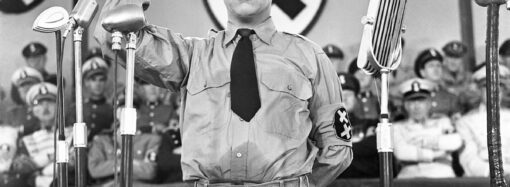June 27, 2008
Opinion Editorial
Teachers unions and other labor groups do not deserve special treatment under our state’s election laws, even if some judges seem determined to give it to them.
On May 19, the Colorado Supreme Court ruled 5-2 that unions could spend member dues money to provide free services to partisan political campaigns.
The decision ended a three-year ordeal for two Fort Collins citizens. Wayne Rutt and Paul Marrick lost their 2005 complaint against the Poudre Education Association (PEA) and its parent Colorado Education Association (CEA).
Rutt and Marrick had uncovered evidence that CEA officials had performed vital grassroots organizing services for state senator Bob Bacon’s 2004 campaign. They sought to build a case that the union had illegally coordinated with the candidate.
CEA staff transported thousands of Bacon campaign literature pieces from union headquarters. CEA members delivered the literature to Democrat and independent voters in Bacon’s Fort Collins district. Bacon himself spoke at the union-organized event to thank the volunteers.
Yet the Supreme Court completely sidestepped the Court of Appeals’ finding that the union had illegally coordinated with Bacon. The majority only considered the phone calls, emails and speeches to union members as “communication.” They did not count the campaign literature PEA members gave directly to voters. This determination makes as much sense as saying that phone calls and emails about producing a political television or radio ad are “communication,” but not the actual commercial.
The Supreme Court said CEA’s communications were all justified, because they only looked at communications made within union ranks. However, dissenting Justice Nathan Coats noted that union staff paid by “general union funds” worked “to organize, administer, and supervise campaign efforts….”
By law, unions must separate general funds from political funds. Union leaders cannot donate general dues funds to political parties, candidates, and issue campaigns. But the Supreme Court said it was okay that general dues funds paid union staff to coordinate and mobilize union member volunteers to work on Bacon’s behalf.
CEA leaders never asked members to use some of their $700 or so in annual dues to help run a partisan campaign. Unlike the $39 “Every Member Option” specifically designated for political action, general dues money is not refundable.
The majority’s stunning logic not only undermines union members’ rights, but also tilts the political balance. The court gave an upper hand to union leaders and their endorsed candidates. Every dollar the union spends on grassroots organizing is a dollar the candidate saves for some other purpose. Union support eases the political fundraising burden.
Individuals can give small amounts to candidates, while corporations cannot contribute at all. But according to the state’s highest court, a labor union can use the “membership exception” to provide in-kind contributions. This goes beyond the small donor contribution limit, which already allows unions to give 10 times more than the average citizen can.
If the court had simply and clearly stated that campaign finance regulations were too strict across the board, it would have been a free speech victory to celebrate. But the majority ruling instead went through contortions to exempt one class–unions–from some of the regulations that govern other Coloradans.
With rules tilted so far askew, the notion of fair elections in Colorado soon may become a mockery.
Yet perhaps there is a solution that could level the playing field. Someone could create a competing political membership group, something like a Colorado Fiscal Conservatives Association (CFCA). The organization could sign up members across the state, collect all kinds of contributions as dues, and then run campaign services for its chosen candidates.
The fictional CFCA only would lack unions’ power to negotiate coercive fees from non-members and to use government payroll services for bill collection.
The candidates courted by the political membership group could effectively outsource grassroots organizing costs and focus funds on their advertising campaigns. What’s good for the labor unions could be good for fiscal conservatives, too.
Allowing a group like CFCA to flourish would be a significant step toward assuring the public that last month’s Supreme Court decision wasn’t merely a concession to labor union clout.
This article originally appeared in the Greeley Tribune on June 20, 2008.







